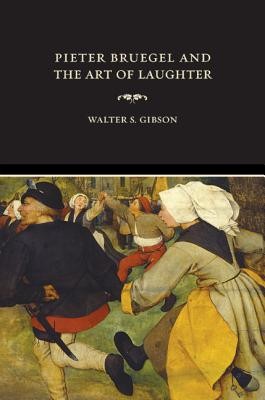
- We will send in 10–14 business days.
- Author: Walter S Gibson
- Publisher: University of California Press
- ISBN-10: 0520245210
- ISBN-13: 9780520245211
- Format: 16.1 x 23.6 x 2.6 cm, hardcover
- Language: English
- SAVE -10% with code: EXTRA
Reviews
Description
Pieter Bruegel (ca. 1525-1569), generally considered the greatest Flemish painter of the sixteenth century, was described in 1604 by his earliest biographer as a supremely comic artist, few of whose works failed to elicit laughter. Today, however, we approach Bruegel's art as anything but a laughing matter. His paintings and drawings are thought to conceal profound allegories best illuminated with scholarly erudition. In this delightfully engaging book, Walter S. Gibson takes a new look at Bruegel, arguing that the artist was no erudite philosopher, but a man very much in the world, and that a significant part of his art is best appreciated in the context of humor. In his illuminating examination of the witty and amusing elements in Bruegel's paintings, prints, and drawings in relation to the sixteenth century European culture of laughter, Gibson reminds us exactly why Bruegel was one of the most original artists of his time.
In a series of engrossing chapters, Gibson explores the function and production of laughter in the sixteenth century, examines the ways in which Bruegel exploited the comic potential of Hieronymus Bosch, and traces how the artist developed his remarkable gift for physiognomy in his work, culminating in three paintings of festive peasants he produced during the 1560s: the Wedding Dance, the Kermis, and the Wedding Banquet. Gibson also takes a detailed look at the Dulle Griet, Bruegel's most complex evocation of Bosch.
EXTRA 10 % discount with code: EXTRA
The promotion ends in 18d.23:18:53
The discount code is valid when purchasing from 10 €. Discounts do not stack.
- Author: Walter S Gibson
- Publisher: University of California Press
- ISBN-10: 0520245210
- ISBN-13: 9780520245211
- Format: 16.1 x 23.6 x 2.6 cm, hardcover
- Language: English English
Pieter Bruegel (ca. 1525-1569), generally considered the greatest Flemish painter of the sixteenth century, was described in 1604 by his earliest biographer as a supremely comic artist, few of whose works failed to elicit laughter. Today, however, we approach Bruegel's art as anything but a laughing matter. His paintings and drawings are thought to conceal profound allegories best illuminated with scholarly erudition. In this delightfully engaging book, Walter S. Gibson takes a new look at Bruegel, arguing that the artist was no erudite philosopher, but a man very much in the world, and that a significant part of his art is best appreciated in the context of humor. In his illuminating examination of the witty and amusing elements in Bruegel's paintings, prints, and drawings in relation to the sixteenth century European culture of laughter, Gibson reminds us exactly why Bruegel was one of the most original artists of his time.
In a series of engrossing chapters, Gibson explores the function and production of laughter in the sixteenth century, examines the ways in which Bruegel exploited the comic potential of Hieronymus Bosch, and traces how the artist developed his remarkable gift for physiognomy in his work, culminating in three paintings of festive peasants he produced during the 1560s: the Wedding Dance, the Kermis, and the Wedding Banquet. Gibson also takes a detailed look at the Dulle Griet, Bruegel's most complex evocation of Bosch.


Reviews